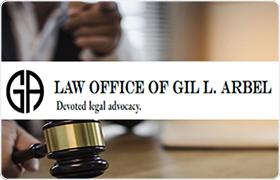Culver City Misdemeanor Lawyer, California
Sponsored Law Firm
-
 x
x

Click For More Info:
-
Law Office of Gil L. Arbel
28541 Conejo View Dr. Agoura Hills, CA 91301» view mapCriminal Defense Law Devoted Legal Advocacy
At the Law Offices of Gil L. Arbel, we understand that legal matters can be intimidating and complicated, which is why it is crucial to take an informed approach.
800-961-3980
Margaret F. Mendoza
Criminal, DUI-DWI, Felony, Misdemeanor
Status: In Good Standing Licensed: 37 Years
FREE CONSULTATION
CONTACTFREE CONSULTATION
CONTACTSeppi Esfandi
White Collar Crime, Misdemeanor, Felony, Criminal
Status: In Good Standing Licensed: 24 Years
FREE CONSULTATION
CONTACTArdalon Fakhimi
Misdemeanor, Felony, DUI-DWI, Criminal
FREE CONSULTATION
CONTACTFREE CONSULTATION
CONTACTFREE CONSULTATION
CONTACT Gil L. Arbel Agoura Hills, CA
Gil L. Arbel Agoura Hills, CA Practice AreasExpertise
Practice AreasExpertise
